After several failed attempts to take Tobruk in Libya Rommel was ordered to suspend attacks. Meanwhile British forces occupied the Basra oil fields in Iraq; Iraqi forces besieged them and were in turn attacked by the RAF. The Iraqi government called on Germany for aid and the Anglo-Iraqi War began. British cities continued to be bombed by the Luftwaffe, including seven nights of bombing on Liverpool.
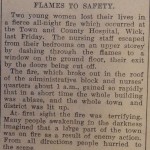
The John O’Groat Journal reported a tragic fire at Wick, when the Town and County Hospital caught fire and two young women, maids who slept in the attic, lost their lives. The story explained that “The fire, which broke out in the roof of the administrative block and nurses’ quarters about 1 a.m., gained so rapidly that in a short time the whole building was ablaze”. All the other staff escaped narrowly with their lives.
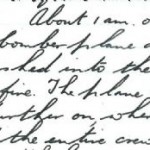
But what the paper was unable to print owing to wartime restrictions was that this was no ordinary fire. The Caithness Police incident book tells the dreadful story: “About 1 am on Friday Morning a British bomber plane apparently in difficulties crashed into the Nurses’ Home and set it on fire. The plane crashed in a field 60 yards further on where a bomb exploded and killed the entire crew of six.”
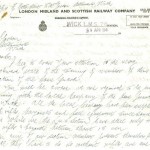 The London Midland and Scottish Railway Company had its own men in the Home Guard. Now
The London Midland and Scottish Railway Company had its own men in the Home Guard. Now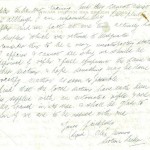 the Section Leader at Wick wrote to protest that “All the local company have been supplied with rifles, bayonets and full equipment while we (the LMS section) have still rely the two rifles & bayonets between about 15 men.” When they turned up for drill they were treated as beginners because they didn’t have any weapons, and as a result were losing their enthusiasm.
the Section Leader at Wick wrote to protest that “All the local company have been supplied with rifles, bayonets and full equipment while we (the LMS section) have still rely the two rifles & bayonets between about 15 men.” When they turned up for drill they were treated as beginners because they didn’t have any weapons, and as a result were losing their enthusiasm.
Another mine appeared off the Caithness coast on Sunday at 9.15pm, and was dealt with by a local marksman. The note of the call received by the police from Mr MacKenzie at John O’Groats is as follows: “A German float conical mine is being floated ashore with the tide between the wreck at Ness Point and the hotel. I suggest we try to explode or sink it by rifle fire before it comes ashore. What do you say to this. Will I get into trouble if I do so?” Told to use his own judgment, Mr MacKenzie reported back at 10.30pm. “I have sunk the mine by rifle fire about 30 yards off shore.” With a pardonable touch of pride he added, “Got mine with the 18th shot from 500 yards.”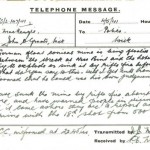
Finally this week, as if wartime privations and rationing weren’t enough, the John O’Groat Journal reminded its readers that double Summer Time began on Saturday. “All clocks and watches should be put forward one hour on Saturday night, May 3. This will give two hours of Summer Time instead of one as at present.” This would last until 10 August, when clocks were to be put back one hour.
